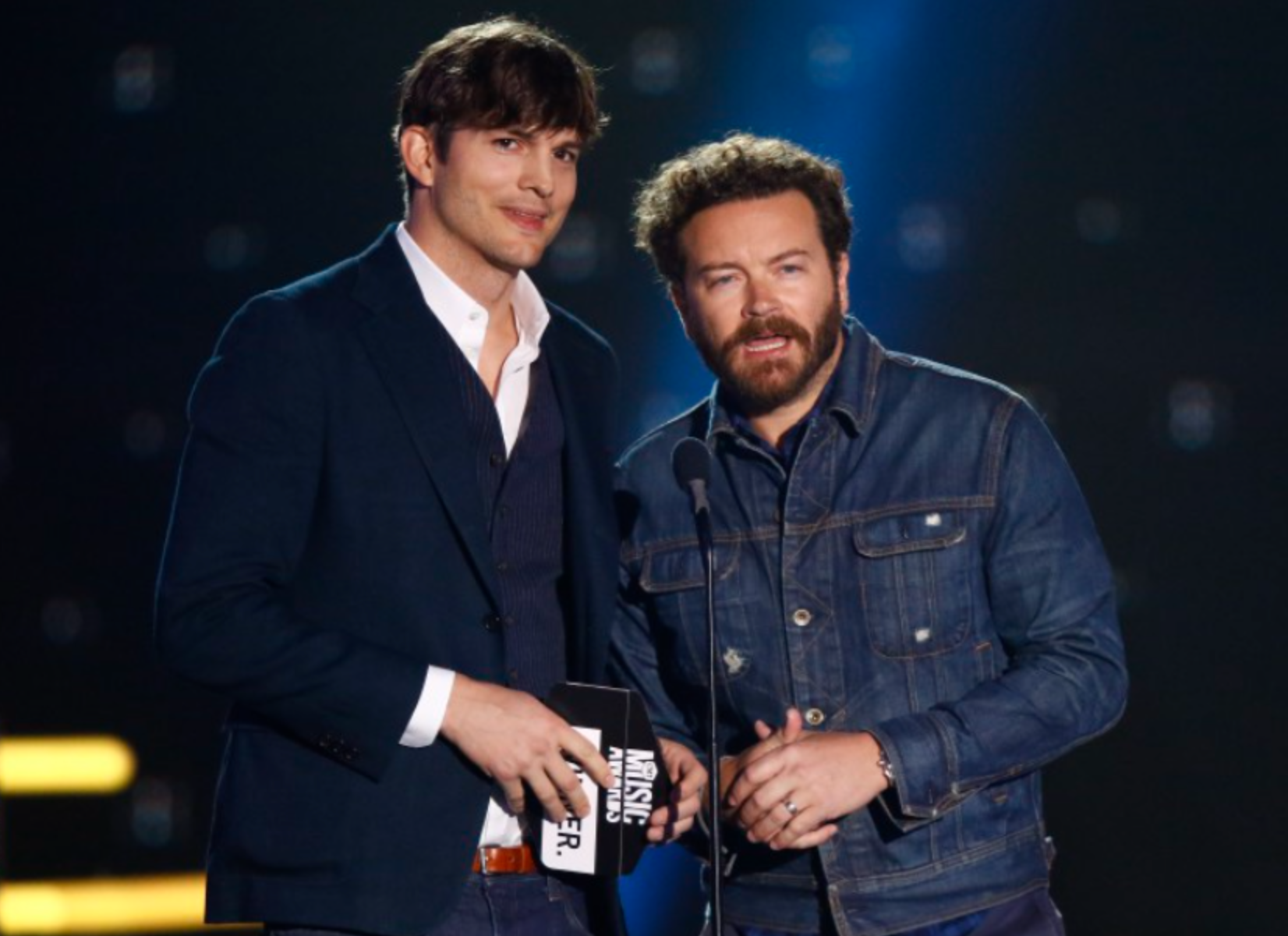What on earth were Ashton Kutcher and Mila Kunis thinking?
The Hollywood power couple felt so strongly about Danny Masterson’s ‘exceptional character’ that they sent supporting letters to a Los Angeles judge to try and get him a more lenient sentence – for rape. Sorry... what?

I used to believe that good and evil are polar opposites: incapable of coexistence in one human. It’s a lovely, clear, reassuring dichotomy that’s easily understood – and, I thought, easily identifiable. Evil is dark, ugly and lurks in shadows, corners and down creepy, rubbish-strewn alley ways. And evil can be easily avoided if you just do the right things: don’t talk to strangers, don’t attract the wrong attention, trust figures of authority like teachers and the police.
But I soon learned that really evil is mundane, ordinary and subjective. A nice paediatric nurse, loved by her family and friends, can commit unthinkable acts, like serial killer Lucy Letby. A famous US actor, adored by Hollywood co-stars and friends, like Danny Masterson, can be a rapist.
This is a life lesson that seems to have escaped Hollywood power couple Ashton Kutcher and Mila Kunis, who’ve been friends with their That 70s Show co-star Danny Masterson for a quarter of a century. They feel like they know him well. They feel that he’s had a significant, positive influence on their lives. In fact, they feel so strongly about Masterson’s “exceptional character” that the couple sent supporting letters to Los Angeles Superior Court Judge Charlaine F Olmedo in an attempt to get a more lenient sentence for their friend.
Now, I’m sure that loving someone who’s committed such heinous acts is horrendous. I’m sure it’s painful, distressing and bewildering. I’m sure it feels like everything you thought to be true in the world has to be reassessed once you realise that someone you loved, trusted and held close – someone who’s shown kindness and understanding to you personally – also has the capacity to treat another person with great cruelty. Yes, it must be utterly horrific. But I feel far less sympathy for Kunis and Kutcher, whose letters carry more than a whiff of arrogance.
At appears as though Kutcher and Kunis see themselves as the good guys. They support victims, they tell us. But not, it seems the victims of Masterson. Kutcher and Kunis both say they believe Masterson was instrumental in them “not falling into the typical Hollywood life of drugs”. This presentation of a ferociously anti-drugs Masterson, following his conviction for drugging and raping two women, doesn’t read much like support for victims to me.
In a demonstration of astonishing hubris, Kutcher’s letter seems to suggest that his character judgement should be taken into account alongside the women Masterson raped: “While I’m aware that the judgement has been cast as guilty on two counts of rape by force and the victims have a great desire for justice, I hope that my testament to his character is taken into consideration in sentencing.”
He also seems to think he’s a dab hand at criminal psychology: “I do not believe he is an ongoing harm to society and having his daughter raised without a present father would be a tertiary injustice in and of itself. Thank you for taking the time to read this.”
Sorry, what? How would Kutcher possibly know?
Anyone hoping that Mila Kunis’s letter would be any less galling – after all, the actor was outspoken about sexual harassment and abuse in Hollywood during the Time’s Up campaign – will be disappointed: “Danny Masterson’s warmth, humour, and positive outlook on life have been a driving force in shaping my character and the way I approach life’s challenges,” Kunis gushes. “I wholeheartedly vouch for Danny Masterson’s exceptional character and the tremendous positive influence he has had on me and the people around him.”
All the people around him... apart from the women he raped, that is. Kunis goes to on to say that Masterton is “an amazing friend, confidant, and, above all, an outstanding older brother figure to me”.

In their apology video, the couple clarify that the letters “were intended for the judge to read and not to undermine the testimony of the victims or re-traumatise them in any way. We would never want to do that, and we’re sorry if that has taken place.”
Like many viewers of the video, I’m not persuaded by the couple’s defence. They could have chosen not to attempt to influence Masterson’s sentencing; they could have declined to be two of the 50 people who “vouched” for the 47-year-old convicted rapist. The trouble for Kutcher and Kunis, it seems to me, is that their letters say more about them than they do about Masterson.
The couple seem to subscribe to a simplistic good/evil dichotomy that, frankly, allows rapists and murderers to hide in plain sight – and encourages victim-blaming.
Christina Ricci nailed the problem with the Kunis-Kutcher letters in an Instagram story she posted shortly after the couple released their apology video: “So sometimes people we loved and admired do horrible things. They might not do these things to us and we only know who they were to us but that doesn’t mean they didn’t do the horrible things and to discredit the abused is a crime. People we know as ‘awesome guys’ can be predators and abusers. It’s tough to accept but we have to. If we say we support victims – women, children, men, boys – then we must be able to take this stance.
Since news of the couple’s letters broke, a clip has resurfaced showing Kutcher introducing an episode of Punk’d from the early noughties. Kutcher describes his pranking victim, Hilary Duff – then a 15 year-old child star – as “one of the girls that we’re all waiting for to turn 18. Along with the Olsen twins.” He’s hardly the one to be making character witnesses about others.
Join our commenting forum
Join thought-provoking conversations, follow other Independent readers and see their replies
Comments


Bookmark popover
Removed from bookmarks